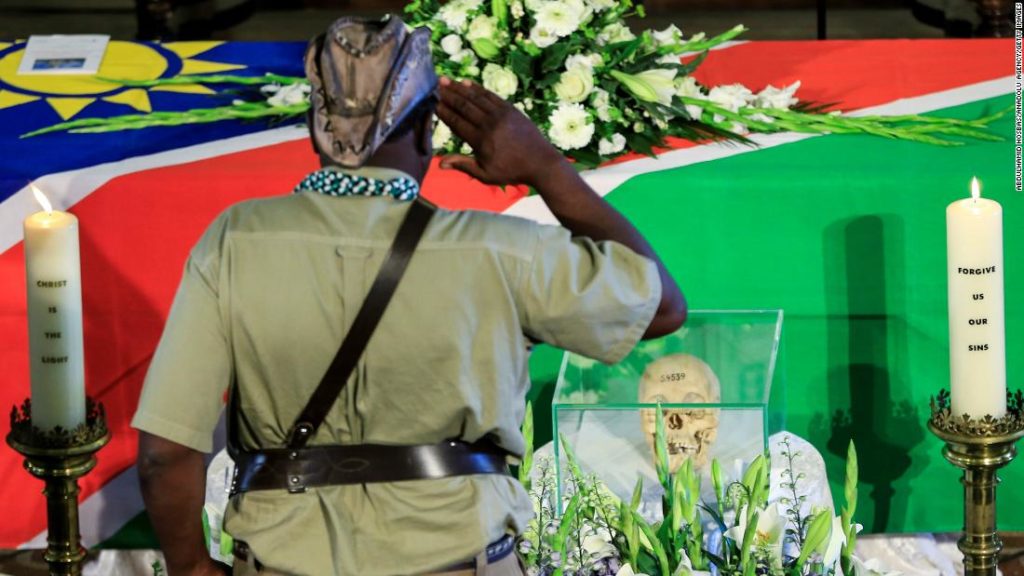Germany will support Namibia and the descendants of the victims with €1.1 billion for reconstruction and development and ask for forgiveness for the “crimes of German colonial rule,” German Foreign Minister Heiko Maas said in a statement on Friday.
“Our goal was and is to find a common path to genuine reconciliation in memory of the victims. This includes naming the events of the German colonial period in what is now Namibia, and in particular the atrocities in the period from 1904 to 1908, without sparing or glossing over them. We will now also officially call these events what they were from today’s perspective: a genocide,” Maas said.
The Namibian government saw the formal acceptance of the atrocities as genocide as a key step in the process of reconciliation and reparation, Namibian presidential press secretary Alfredo Hengari told CNN on Friday.
“These are very positive developments in light of a very long process that has been accelerated over the past five years. People will never forget this genocide; they live with it. And this is an important process in terms of healing those wounds,” he said.
A bloody conflict
According to historians, the bloody conflict happened when the Herero indigenous people revolted against colonial troops over land seizures. Germany, which today gives development aid to Namibia, offered its first formal apology for the conflict in 2004.
“The crimes of German colonial rule have long burdened relations with Namibia. There can be no closing of the book on the past. However, the recognition of guilt and our request for apology is an important step towards coming to terms with the crimes and shaping the future together,” Maas said.
German media is reporting that an official request for forgiveness will be made by German President Frank-Walter Steinmeier at a ceremony in the Namibian parliament.
“A decision on a possible trip by the Federal President will be made after the governments have reached a formal agreement and in close consultation with the Namibian side,” a spokesperson at the office of the Federal President told CNN.
In 1994, around 800,000 mainly ethnic Tutsis were killed by Hutu militias supported by the Rwandan government. France has been accused of failing to prevent the genocide and of supporting the Hutu regime, even after the massacres had started.
You may also like
-
Afghanistan: Civilian casualties hit record high amid US withdrawal, UN says
-
How Taiwan is trying to defend against a cyber ‘World War III’
-
Pandemic travel news this week: Quarantine escapes and airplane disguises
-
Why would anyone trust Brexit Britain again?
-
Black fungus: A second crisis is killing survivors of India’s worst Covid wave

